Finn’s mom setup a camera to find out why the 23-month-old always ends up sleeping next to Brutus his best friend.
Do dogs like to snuggle with toddlers?
Dogs have been referred to as man’s best friend for centuries, and there’s a reason for that. They make great companions, they’re always happy to see us, and they’re always up for a cuddle. But do dogs actually like snuggling with toddlers? The answer may surprise you. Recent studies have shown that dogs do indeed enjoy snuggling with toddlers. In fact, they seem to prefer it to snuggling with adults. This is because toddlers are more likely to match the pitch and frequency of a dog’s vocalizations, which makes them feel more connected to them. In addition, toddlers tend to be more physical when they play, which can be fun for a dog who just wants to rough around. So next time your toddler wants to cuddle with the family dog, don’t hesitate – they’re probably just as into it as your toddler is.
As any pet owner knows, dogs can make great companions. They provide us with unconditional love and ask for nothing in return. For many people, their dog is a true member of the family. So it’s no wonder that many parents want to introduce their child to the joys of owning a dog. But before you let your toddler snuggle up with your furry friend, there are a few things to consider.
First and foremost, you need to make sure that your dog is comfortable around children. Some dogs are naturally wary of small kids, and even the friendliest dog may become agitated if a toddler tries to pull its tail or ears. It’s important to introduce your child to your dog slowly and supervise all interactions closely. If your dog does not seem comfortable around children, it’s best to wait until your child is older before considering getting a pet.
Another thing to keep in mind is that toddlers are notorious for putting things in their mouths. This means that there is a risk of them trying to nibble on your dog’s fur or skin. While most dogs will simply walk away from this unpleasant experience, some may react more aggressively. For this reason, it’s important to closely monitor your child.
Top 10 Related Dog Videos
1.
 Talking Husky Demands To Be Fed Waffles Mishka says “I want waffles,” “I love you” and “I want my own.” Can dogs eat waffles? Many people enjoy treating their dogs to special ... Read more
Talking Husky Demands To Be Fed Waffles Mishka says “I want waffles,” “I love you” and “I want my own.” Can dogs eat waffles? Many people enjoy treating their dogs to special ... Read more2.
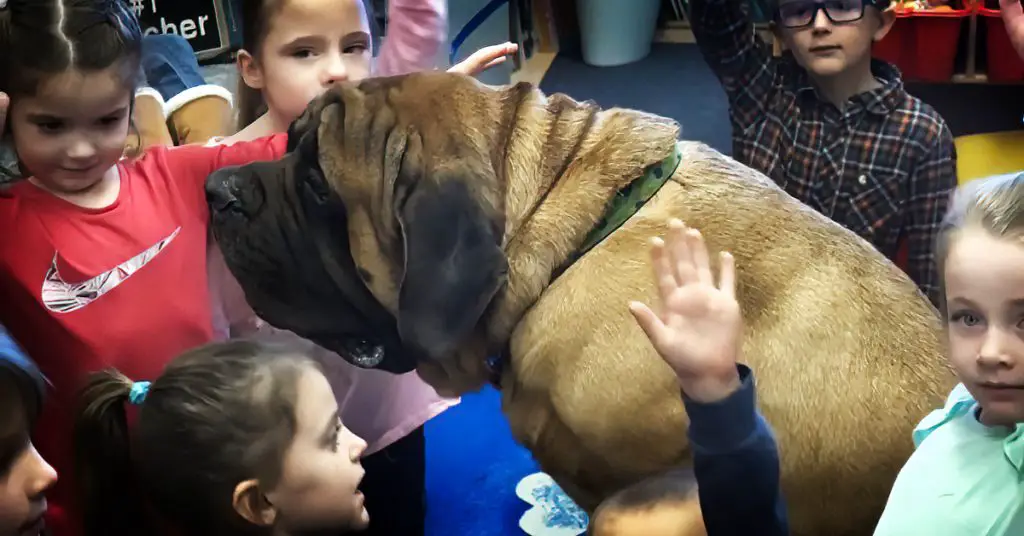 200 Pound Mastiff Serves As Therapy Dog At Elementary School Gabe is a massive dog, but he is so gentle and loving to the kids at this Virginia elementary school. Are english mastiffs good therapy ... Read more
200 Pound Mastiff Serves As Therapy Dog At Elementary School Gabe is a massive dog, but he is so gentle and loving to the kids at this Virginia elementary school. Are english mastiffs good therapy ... Read more3.
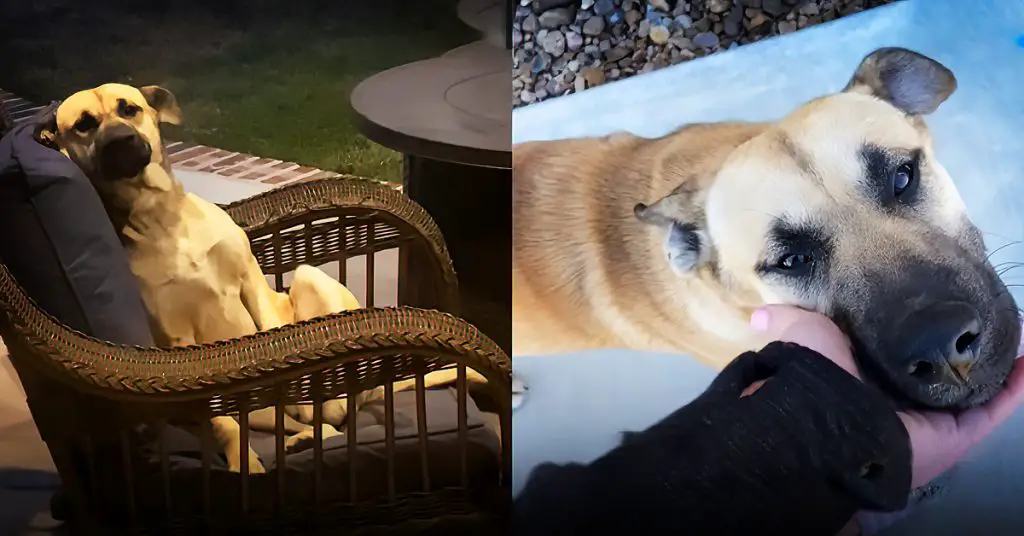 Woman Wakes Up To Find A Stray Dog Sitting On Her Patio Like He Lived There Amy Haden didn’t expect to find a dog on her patio, but took him in and helped him find the perfect forever home. What do ... Read more
Woman Wakes Up To Find A Stray Dog Sitting On Her Patio Like He Lived There Amy Haden didn’t expect to find a dog on her patio, but took him in and helped him find the perfect forever home. What do ... Read more4.
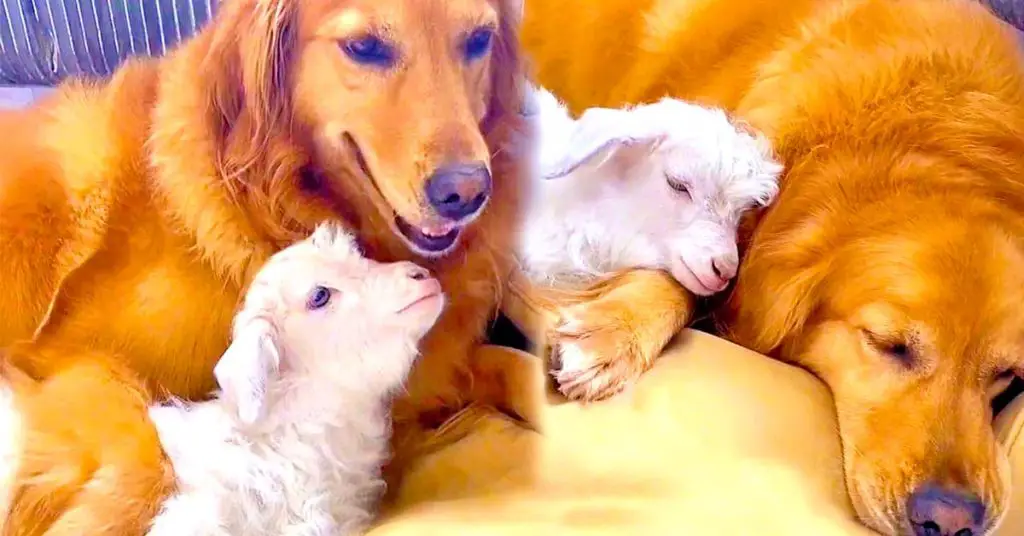 Golden Retriever Makes Friends With Baby Goat And It’s Adorable Niuniu the dog even helps to bottle feed the baby goat in this adorable video. The Internet is filled with adorable animal videos, and this ... Read more
Golden Retriever Makes Friends With Baby Goat And It’s Adorable Niuniu the dog even helps to bottle feed the baby goat in this adorable video. The Internet is filled with adorable animal videos, and this ... Read more5.
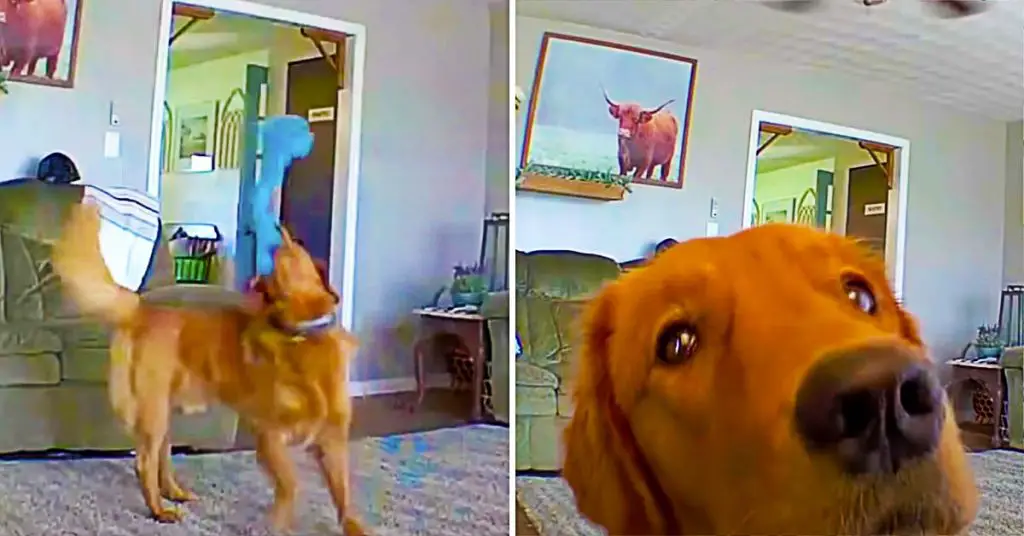 Golden Retriever Discovers Puppy Cam For The First Time This Golden Retriever is having a good time twirling his toy through the air when all of a sudden he hears his human talking to ... Read more
Golden Retriever Discovers Puppy Cam For The First Time This Golden Retriever is having a good time twirling his toy through the air when all of a sudden he hears his human talking to ... Read more6.
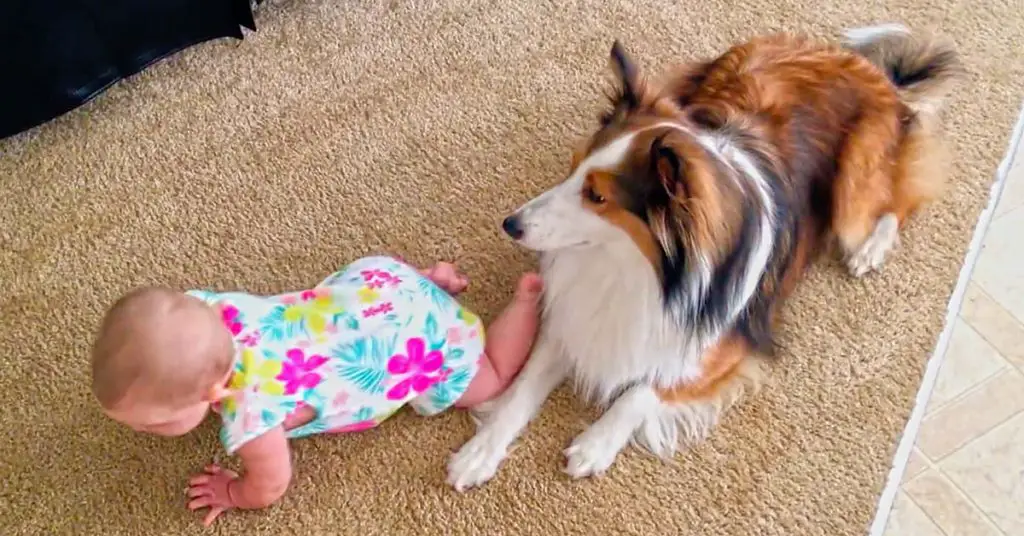 Loving Dogs Teach Baby How To Crawl Link the Shetland dog teaches baby Holland how to crawl. They have such a loving friendship that is only going to grow. The Shetland dog, ... Read more
Loving Dogs Teach Baby How To Crawl Link the Shetland dog teaches baby Holland how to crawl. They have such a loving friendship that is only going to grow. The Shetland dog, ... Read more7.
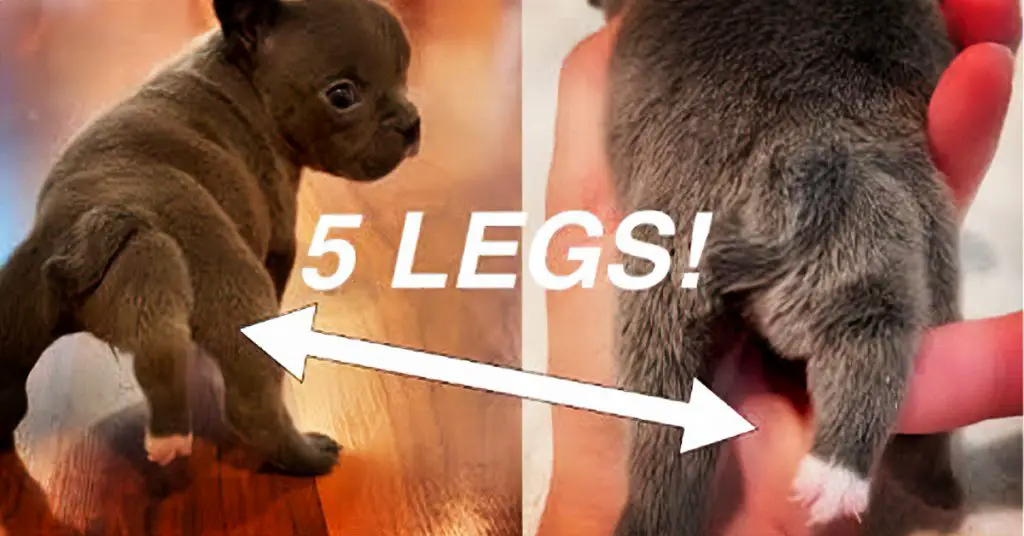 An Adorable Puppy Was Born With 5 Legs Chanel #5 the American Bulldog was born with a leg where her tail would normally be located. Ultrasounds have proven that it is indeed an ... Read more
An Adorable Puppy Was Born With 5 Legs Chanel #5 the American Bulldog was born with a leg where her tail would normally be located. Ultrasounds have proven that it is indeed an ... Read more8.
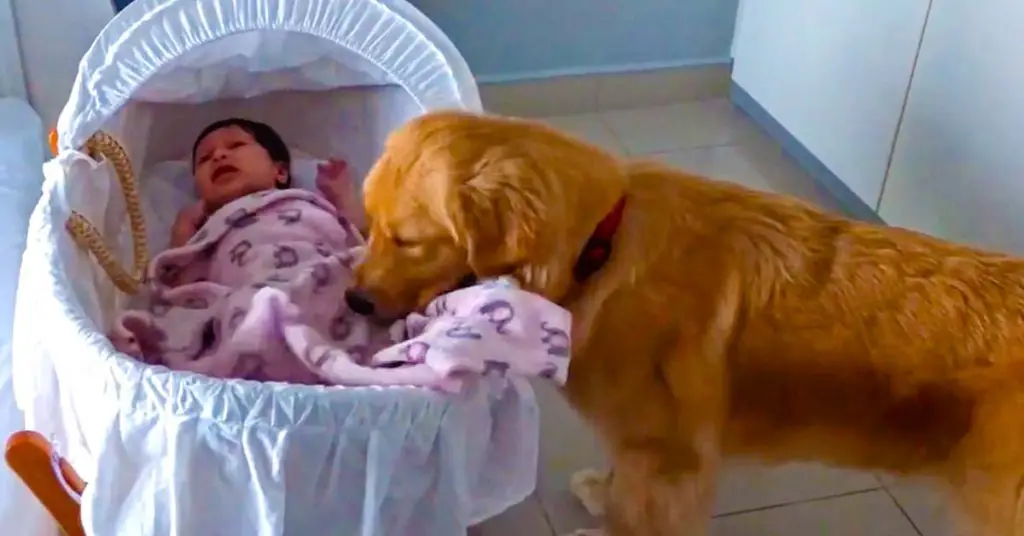 Sweet Golden Retriever Soothes Crying Newborn Baby Birra the Golden Retriever does her best to comfort the crying baby. What could be more heartwarming than a sweet golden retriever calming down a ... Read more
Sweet Golden Retriever Soothes Crying Newborn Baby Birra the Golden Retriever does her best to comfort the crying baby. What could be more heartwarming than a sweet golden retriever calming down a ... Read more9.
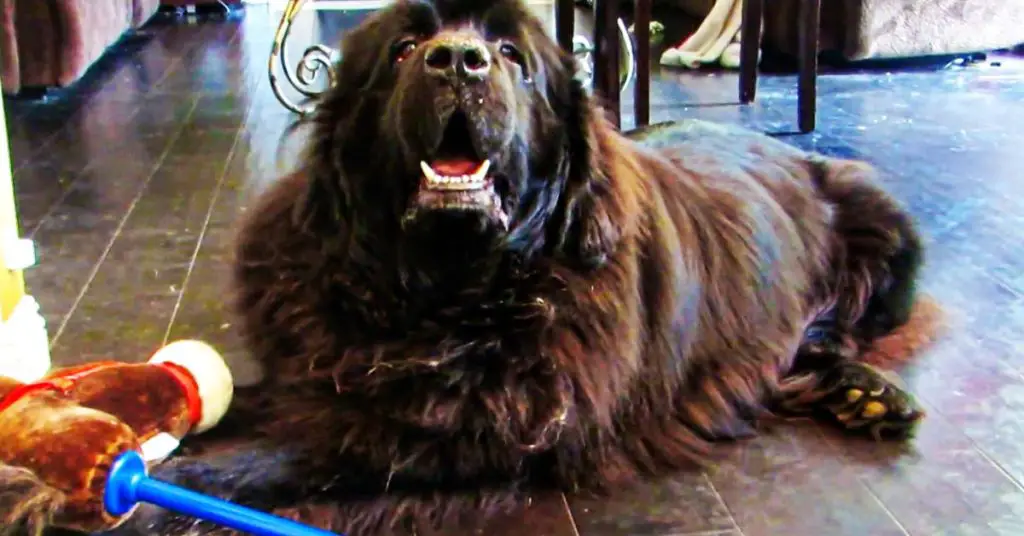 Guilty Newfoundland Ate A Cupcake, Gets Defensive When Mom Brings Up The Topic Sebastian the Newfoundland dog ate a cupcake off the counter and would appreciate it if his owner would let it go. Their conversation is so ... Read more
Guilty Newfoundland Ate A Cupcake, Gets Defensive When Mom Brings Up The Topic Sebastian the Newfoundland dog ate a cupcake off the counter and would appreciate it if his owner would let it go. Their conversation is so ... Read more10.
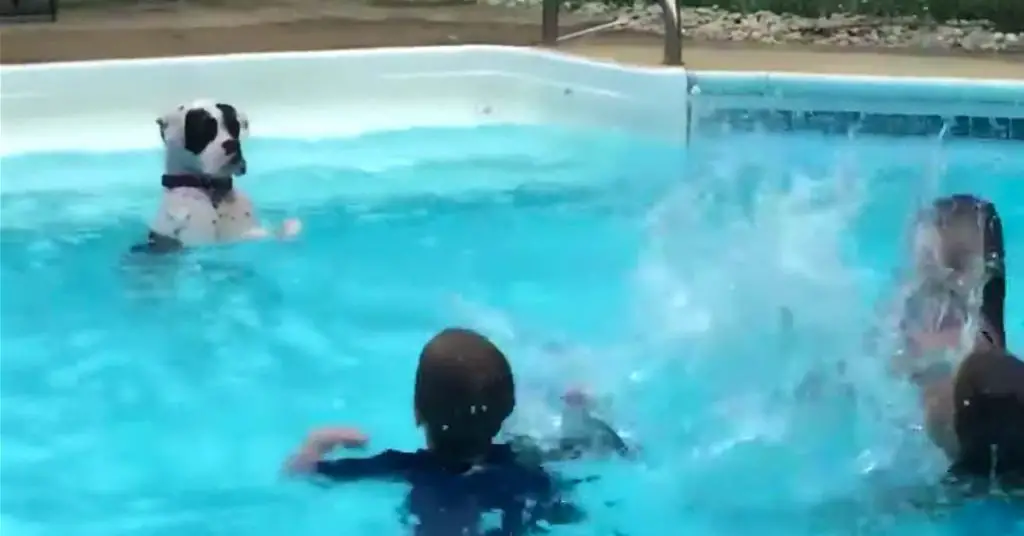 Dog Mimics Kids In Pool By Learning To Stand And Splash Back This funny Boxer gets splashed by the kids in the pool so he splashes them back. Do dogs like to splash in the pool? While ... Read more
Dog Mimics Kids In Pool By Learning To Stand And Splash Back This funny Boxer gets splashed by the kids in the pool so he splashes them back. Do dogs like to splash in the pool? While ... Read more